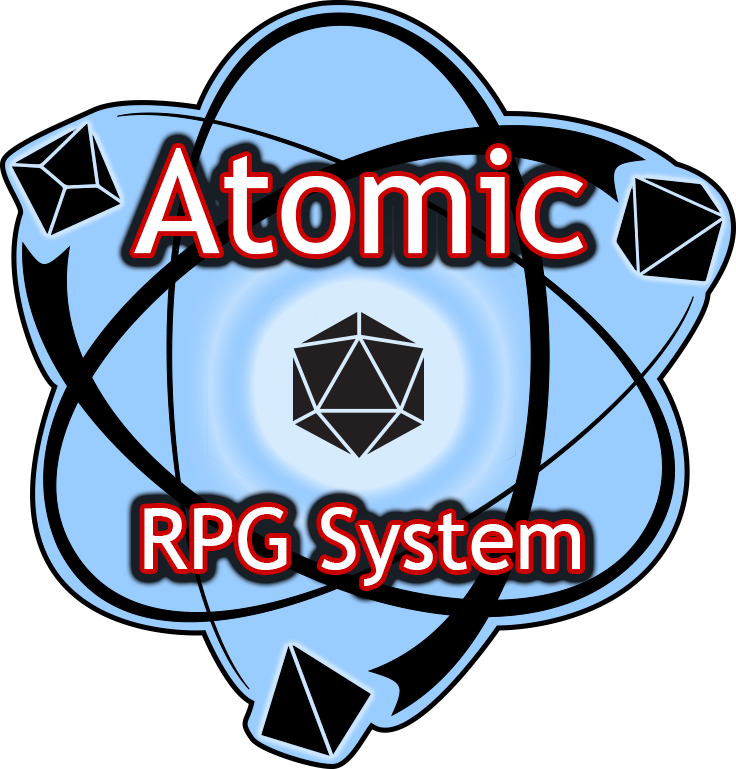Social Skill
Characters will use the Social Skill when interacting with NPCs and during most social situations.
The Social Skill in the Atomic RPG System is another wide ranging skill that will be used by characters in a variety of situations. It represents how the character interacts with NPC’s during all kinds of situations.
Sample Social Skill Checks
Below is a list of some of the most common uses of the Social Skill. The difficulty of these checks will be determined by the GM. Most checks should follow the Easy/Moderate/Hard rules but the GM may set static numbers as well. Reference the GM guide for Skill Checks for more details.
- Making Friends at a Party
- Haggling Prices
- Convincing Someone
- Tell or Discover Lies
- Pleading Your Case
- Gathering Information
- Influencing Someone
A character's Spirit Trait determines the base skill bonus.
Player Cooperation - Aid Another
Multiple characters can work together to figure something out. This is called Aiding Another.
To successfully Aid Another character the character helping must make the same check the as the one rolling the Skill Check. If they succeed then the player rolling the Skill Check can add their Character Tier to their roll.
However, if the character helping fails in the check, the player will get a penalty to the roll of their Character Tier. Only one player may Aid another at a time.
Passive Social Checks
Your Passive Social check is your normal bonus + 10. This is used by the GM to determine things that you may notice or know without having to actively ask to use your skill. This also can determine how easy you are to approach.
This is a useful tool the GM can use to give out information in the game. Or can even be prompted by the player to see if the GM is willing to give you something for free.
Social Check as an Action
Social as an Action will happen when a player character tries to do something that may require a Social Skill. Examples that would require the use of an Action would include haggling down a price, asking for aid from the mayor, or determining if someone might be lying in a conversation.
Befriending
Using the Social Skill in this manner can only be done in Turn Time or Real Time.
Difficulty of Checks:
Easy: Such as at a dinner party befriending a stranger.
Moderate: Such as bandits trying to rob them.
Hard: Trying to convince a blood enemy of the character to form a truce.
If the player is successful in their Social Skill Checks they begin to form a friendship with the NPC.
Detect Lies
The character trying to detect the lie should roll a Social Skill Check. If the detecting Social Skill Check beats the lying characters' Subterfuge or Social Skill Check (Whichever is higher.), the lie is detected. The truth is not revealed, only that the character has lied.
Determine Intentions
On a more one on one level, the Social Skill can be used in a conversation to try to "read between the lines"--determining what is going unsaid.
The Social Skill can be used to see if the character is trustworthy, honest, or is setting a trap for the party.
Gathering Information
This can be a great way to locate and learn about local NPCs, legends, and rumors.
The GM can even expand this to have the characters learn many rumors and then take time to figure out if they are true or not. This can be a great story telling tool.
Haggle Prices
Players will roll a Social Skill Check against a Easy/Moderate/Hard check set by the GM. If the player is successful, they will receive 1/10 their Social Skill Check roll as a discount. This may not seem like much when considering haggling over the price of a dinner; however, it could make a big difference for expensive items.
Example: The character rolls a 30 on their Social Skill Check roll and beats the merchant. This will give them a 3% discount on their purchase. This is only .15 on a meal that costs 5. However, if the same roll was applied to an Advanced Item that costs 100,000 cash, it will save them 3,000 cash.
Persuasion
This can be very useful in all manner of thing roleplay scenarios.
Examples: Getting the king to acknowledge a rumored threat, having the guards keep an eye out for an NPC, or even get an opponent to side with you in a political debate.
GMs are encouraged to have players roleplay these situations out as it can add an amazing depth the story, NPCs, and most importantly the characters.
